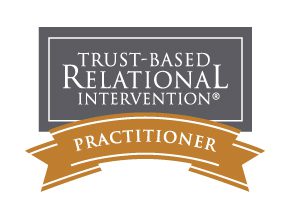Trust-Based Care Group
TBRI®, which stands for Trust Based Relational Intervention, was developed by child development psychologists Dr. Karyn Purvis and Dr. David Cross at Texas Christian University, and integrates decades of attachment research with the latest advances in neuroscience. TBRI® is a product of the hard evidence we now have – not only of what happens to the developing brain when traumatized – but what we can DO about it. TBRI® itself is a breakthrough, because it’s designed to inform and equip a child’s own parents and everyday caregivers – like teachers, coaches, healthcare workers – to meet the fundamental needs behind behaviors.
“All children need to know they are precious. Children from hard places need to know it more desperately.” – Dr. Karyn Purvis
Dr. Purvis coined the term “children from hard places” to refer to those whose young lives are touched by hardship and trauma. Along with abuse, neglect and catastrophic events, it’s now recognized that normal development can be compromised as early as in the womb by unhealthy conditions or adversity in a pregnant woman’s life. So can difficult birth, and necessary medical procedures during infancy and early childhood – all of these are risk factors for developmental trauma, and can result in the same kind of damage as intentional harm.
This damage during crucial developmental phases can hinder a child’s ability to understand, handle and communicate their own needs and feelings, process everyday sensory input, and learn at the same pace as their peers in academic and social settings. A child or teen may therefore be functioning at half or less than what is to be expected at their chronological age.
This is why, as you may have discovered if you are reading this, traditional methods of discipline simply do not work with children and teens from hard places.
This is also a major reason for the limited success of common clinical approaches such as talk therapy or behavior modification techniques that rely on age-appropriate verbal and reasoning skills, of which a child or teen affected by trauma and hardship has developed only half or less compared to other kids their age.
TBRI® addresses the needs of the whole child, not just symptoms. Using TBRI’s Connecting, Empowering and Correcting Principles and Strategies, caring adults learn to use the power of secure attachment and trust-building skills in their everyday relationships with struggling kids, to guide them back to a path of healthy development that was sidetracked by early adversity.
Learn more about TBRI® here
The HALO Project is another excellent resource based on the Hope Connection Camp program, that is currently provided to adoptive families in Allentown and Harleysville, PA through the Salvation Army Children’s Services in partnership with HALO Project of Oklahoma City, OK.
Amy is proud to be a HALO Trauma Education and Kid’s Club Clinician. Learn more about the HALO Project here!
